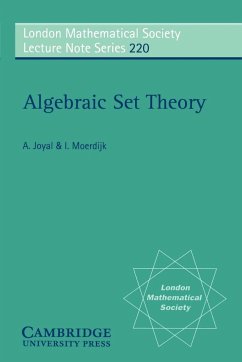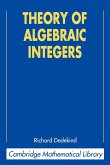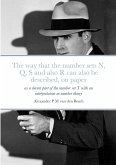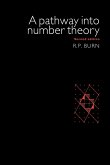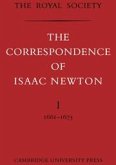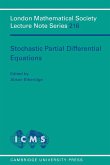This book offers a new, algebraic, approach to set theory. The authors introduce a particular kind of algebra, the Zermelo-Fraenkel algebras, which arise from the familiar axioms of Zermelo-Fraenkel set theory. Furthermore the authors explicitly construct such algebras using the theory of bisimulations. Their approach is completely constructive, and contains both intuitionistic set theory and topos theory. In particular it provides a uniform description of various constructions of the cumulative hierarchy of sets in forcing models, sheaf models and realisability models. Graduate students and researchers in mathematical logic, category theory and computer science should find this book of great interest, and it should be accessible to anyone with some background in categorical logic.
Table of contents:
1. Axiomatic theory of small maps; 2. Zermelo-Fraenkel algebras; 3. Existence theorems; 4. Examples.
Offers a new, algebraic, approach to set theory. The authors introduce a particular kind of algebra, the Zermelo-Fraenkel algebras, which arise from the familiar axioms of Zermelo-Fraenkel set theory. Furthermore the authors explicitly construct such algebras using the theory of bisimulations. Their approach is completely constructive, and contains both intuitionistic set theory and topos theory.
This book offers a new, algebraic, approach to set theory.
Table of contents:
1. Axiomatic theory of small maps; 2. Zermelo-Fraenkel algebras; 3. Existence theorems; 4. Examples.
Offers a new, algebraic, approach to set theory. The authors introduce a particular kind of algebra, the Zermelo-Fraenkel algebras, which arise from the familiar axioms of Zermelo-Fraenkel set theory. Furthermore the authors explicitly construct such algebras using the theory of bisimulations. Their approach is completely constructive, and contains both intuitionistic set theory and topos theory.
This book offers a new, algebraic, approach to set theory.

